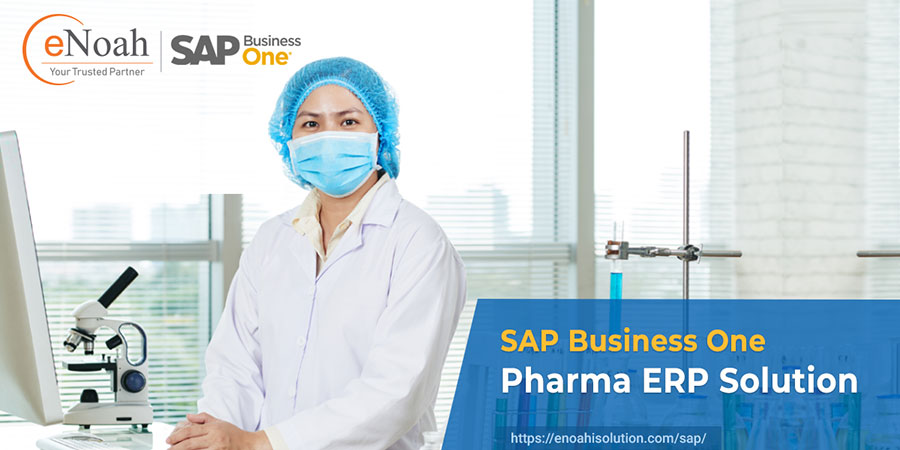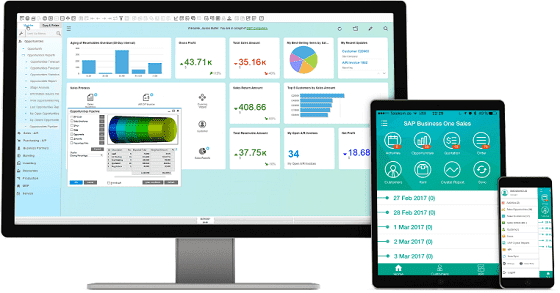 Why SAP Business One a Game Changer for Pharmaceutical Manufacturing Companies
Why SAP Business One a Game Changer for Pharmaceutical Manufacturing Companies

In the ever-evolving landscape of pharmaceutical manufacturing, staying ahead of the curve is not just an advantage – it’s a necessity. The intricacies of this industry demand precision, compliance, and efficiency at every step of the production process. This is where SAP Business One steps in, offering a comprehensive solution tailored to the unique needs of pharmaceutical manufacturers. Let’s delve into why SAP Business One a game-changer for pharmaceutical manufacturing companies.
- Seamless Regulatory Compliance
- Navigating the complex web of regulations and standards in the pharmaceutical sector is a challenge that can’t be taken lightly. SAP Business One comes equipped with features that facilitate adherence to Good Manufacturing Practices (GMP), Good Laboratory Practices (GLP), and other regulatory requirements. The system ensures that your processes and documentation are compliant, reducing the risk of costly fines or product recalls.
- Batch Tracking and Traceability
- Traceability is paramount in the pharmaceutical industry, where the ability to track and trace batches of raw materials, intermediates, and finished products is not only crucial for quality control but also for patient safety. SAP Business One enables seamless batch tracking and traceability, providing a complete audit trail and enhancing recall management capabilities.
- Real-time Inventory Management
- Effective inventory management is a linchpin in pharmaceutical manufacturing. SAP Business One offers real-time visibility into your inventory levels, helping you optimize stock levels, reduce wastage, and minimize production delays. The system’s demand forecasting capabilities ensure that you can meet market demands without overstocking.
- Product Costing and Production Scheduling
- Accurate product costing is essential for maintaining profitability and competitiveness. SAP Business One provides tools to calculate product costs based on various factors, helping you make informed pricing decisions. Additionally, the solution offers advanced production scheduling capabilities, allowing you to optimize production sequences, allocate resources efficiently, and meet tight deadlines.
- Quality Control and Assurance
- Maintaining high-quality standards is non-negotiable in the pharmaceutical industry. SAP Business One allows you to define and enforce quality control procedures throughout the manufacturing process. You can set up quality checkpoints, monitor deviations, and ensure that only products meeting rigorous quality standards reach the market.
- Enhanced Supply Chain Visibility
- The pharmaceutical supply chain is intricate, involving multiple suppliers, intermediaries, and distribution points. SAP Business One provides end-to-end supply chain visibility, allowing you to manage supplier relationships, optimize procurement processes, and maintain consistent product quality.
- Data-Driven Decision Making
- In the fast-paced pharmaceutical sector, informed decision-making is a competitive advantage. SAP Business One offers real-time analytics and reporting, enabling you to analyze production efficiency, monitor key performance indicators, and identify areas for improvement. Data-driven insights empower you to make strategic choices that drive growth.
- Scalability and Growth
- As your pharmaceutical manufacturing company grows, so do its complexities. SAP Business One is designed to scale with your business, accommodating increased production volumes, expanded product lines, and global operations. The system’s flexibility ensures that it evolves alongside your needs.
In conclusion, the pharmaceutical manufacturing industry demands precision, compliance, and adaptability. SAP Business One addresses these needs head-on, providing a holistic solution that streamlines operations, enhances quality control, and ensures regulatory compliance. By embracing SAP Business One, pharmaceutical manufacturing companies position themselves for success in an industry where innovation and efficiency are paramount.


